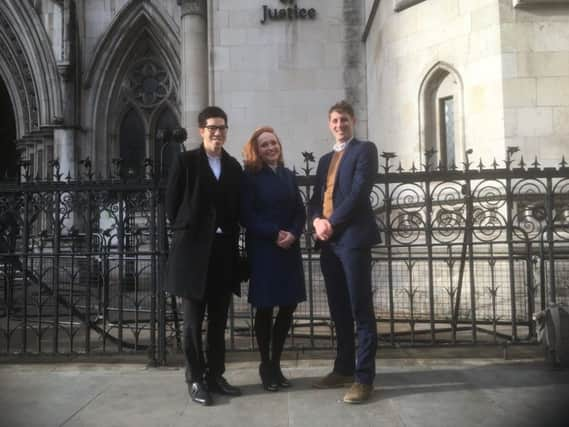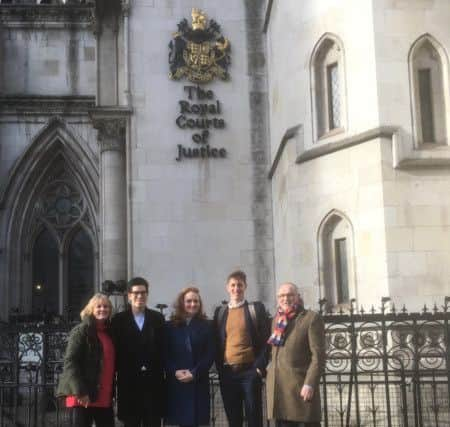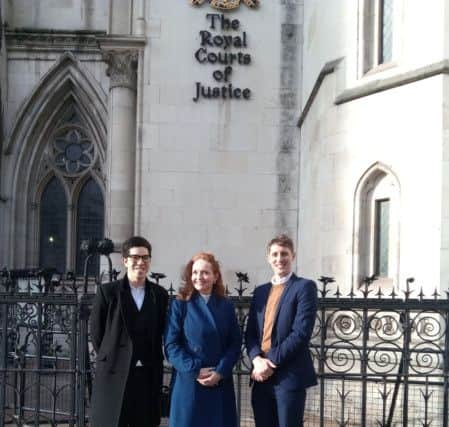Appeal court hears Banbury campaigners’ case on Horton


The Banbury campaigners went to the Court of Appeal to contest the dismissal of an unlawfulness claim by them and local councils over a consultation on Horton downgrading.
“It’s satisfying to have taken this case to the very limits of our abilities and to have appeared in front of the second most important judge in the land,” said Peter McLoughlin, legal lead for KTHG.


Advertisement
Hide AdAdvertisement
Hide Ad“This shows the importance with which it is being treated especially as on the same day the Heathrow expansion appeal appeared under less senior judges.
“We have always maintained that the people of Banburyshire should have had a bigger say in health provision planning as is required under existing law.”
The 2017 consultation was a duty by Oxfordshire Clinical Commissioning Group (OCCG) before it could finalise its plans to end the Horton’s full maternity service and special care baby unit, close 45 beds and downgrade intensive care.
KTHG argued that the public had not been given enough information on a planned second phase (which included primary care) of the Oxfordshire Transformation Plan to allow them to make informed responses to the first part - in particular closing 45 of the Horton’s acute medical beds.


Advertisement
Hide AdAdvertisement
Hide AdKTHG’s lawyer, Samantha Broadfoot QC, described this as ‘putting the cart before the horse’. The campaign group said Oxfordshire Clinical Commissioning Group (OCCG) had not given information about downgrading’s disadvantages - which they were obliged to do - and had not met NHS ‘bed tests’ introduced that spring.
The test said alternative provision for patients must be in place before beds are closed.
Miss Broadfoot argued that the High Court had failed to address one of their key arguments which was that it was unfair to consult on the bed closures without also giving people the relevant information about community provision when the two were very interrelated.
KTHG had accepted that there were good arguments for more and better care out of hospital but said people were unable to make meaningful representations in their responses when the issue of community provision had not been fully developed and was going to be consulted on in Phase 2.
Advertisement
Hide AdAdvertisement
Hide AdPhase 2 was in fact cancelled in March 2018, a few months after the High Court judgment so consultation never actually happened.
Fenella Morris QC, for OCCG, responded that the bed test was not a legal obligation for the group as the guidance had been released after the start of their consultation.
However she said the CCG’s consultation had in any case satisfied the test’s demands and that alternative provision existed in the form of hubs, ambulatory systems and ‘acute hospital at home’.
She maintained the document - The Big Consultation - had given information about the negative consequences of the hospital downgrading as well as the positives and that there was much information available on the CCG’s updated website for anyone wanting to find out more.
Advertisement
Hide AdAdvertisement
Hide AdThere was a further point in dispute - that the High Court judge who dismissed the claim had admitted a witness statement from OCCG in the last hour of the two-day hearing, giving KTHG and the councils insufficient time to consider and respond.
Miss Morris said that statement had not included information relating to bed closures and therefore did not apply.
OCCG supplied a last minute witness statement in this case too, before KTHG could respond, but the judges said they would not consider it unless, for some reason, it became necessary.
The case was heard by Master of the Rolls, Sir Terence Etherton - the country’s second most senior judge in England and Wales after the Lord Chief Justice - along with Lord Justice McCombe and Lord Justice Lindblom.
Advertisement
Hide AdAdvertisement
Hide AdLord Justice Etherton described the advocates’ deliveries as exceptional and said the case is very important to a great many local people.
A decision on the Court of Appeal judges’ is expected in about three weeks.
The Court of Appeal is the highest court within the Senior Courts of England and Wales and second in the legal system of England and Wales only to the Supreme Court of the United Kingdom.